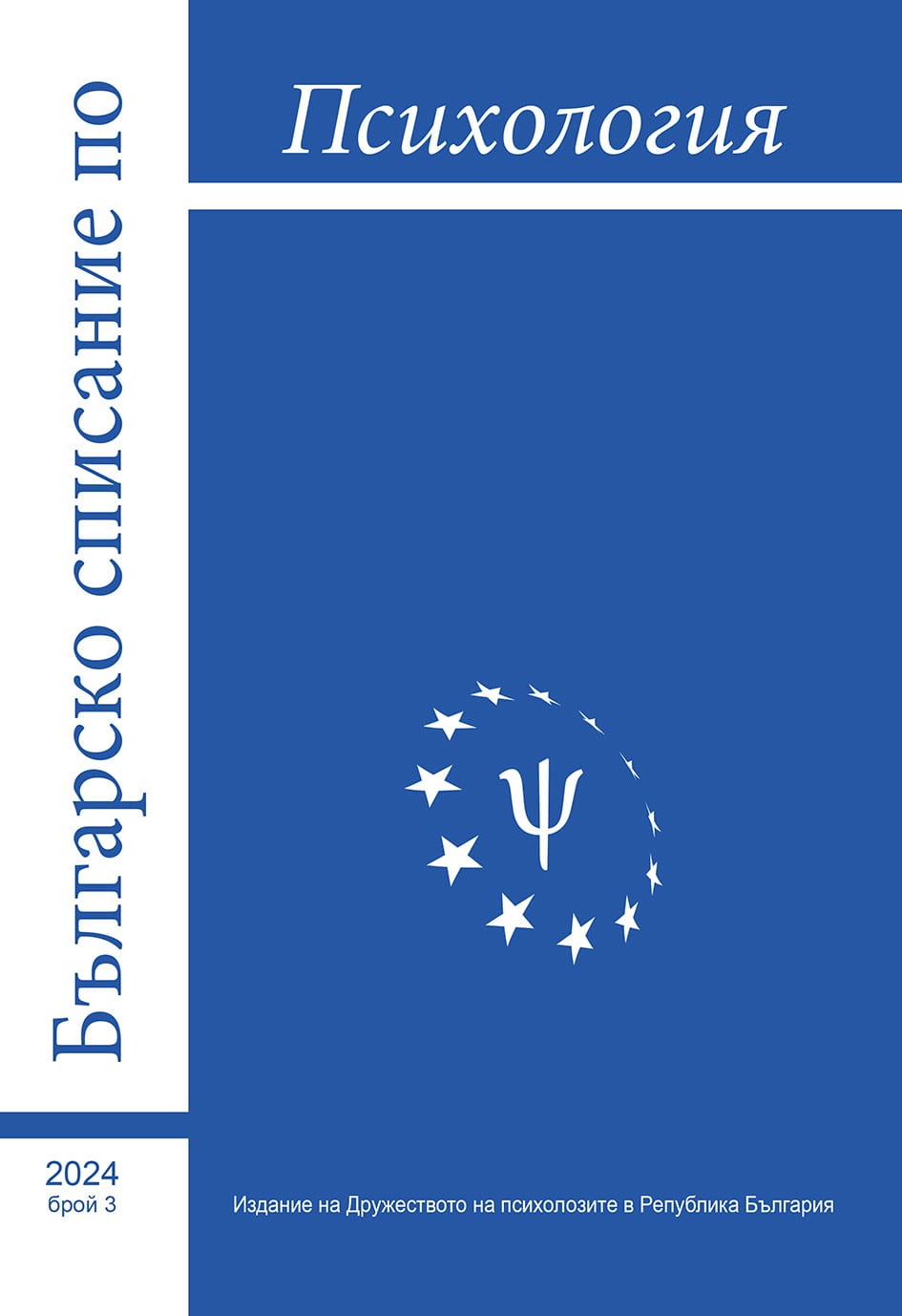ЕМОЦИОНАЛНА ИНТЕЛИГЕНТНОСТ И ТРУДОВА МОТИВАЦИЯ НА СЛУЖИТЕЛИ В ЧАСТНИЯ И ДЪРЖАВНИЯ СЕКТОР
EMOTIONAL INTELLIGENCE AND WORK MOTIVATION OF EMPLOYEES IN PRIVATE AND PUBLIC SECTOR
Author(s): Valeria Vitanova, Dobrin DobrevSubject(s): Social Sciences, Psychology
Published by: Дружество на психолозите в република България
Keywords: emotional intelligence; emotional intelligent behavior at work; work motivation; extrinsic and intrinsic motivation; emotional self-awareness
Summary/Abstract: The aim of this study is to investigate the relationship between emotional intelligence at the workplace and work motivation among professionals in both public and private organizations. The study includes 87 participants, grouped based on nationality, age, gender, educational level, work experience, and field of work. Two questionnaires are employed: one assessing work motivation using 29 questions (Ilieva, 2009) divided into 7 motivational factors – work content, work conditions, career development, payment and benefits, relationship with management, work process and feedback, and relationship with colleagues, as well as intrinsic motivation (Gagné et al., 2015); and another questionnaire assessing self-perceived emotional intelligence at workplace, the Genos Emotional Intelligence Self-assessment Inventory, which consists of the following components: emotional self-awareness, emotional expression, emotional awareness of others, emotional reasoning, emotional self-management, emotional control over others, and emotional self-control (Palmer et al., 2009). The results of the research indicate that overall emotional intelligence at the workplace and its components are correlated with overall work motivation and its components, with the strongest correlation observed with intrinsic motivation (r= 0,432; p=0,000). However, there is no correlation between emotionally intelligent behavior at work and motivation related to payment and benefits. Emotional intelligence at work emerges as a factor influencing both general work motivation (R Square = 0.131; β =0.363, Sig. = 0.001), and intrinsic motivation (R Square =0.186, β =0.432, Sig. = 0.000). It is recommended to implement new strategies aiming to enhance emotional intelligent behavior and skills among employees in organizations, as this improvement is likely to positively contribute to increasing work motivation levels, and overall organizational effectiveness.
Journal: Българско списание по психология
- Issue Year: 2024
- Issue No: 3
- Page Range: 1134-1145
- Page Count: 12
- Language: English

